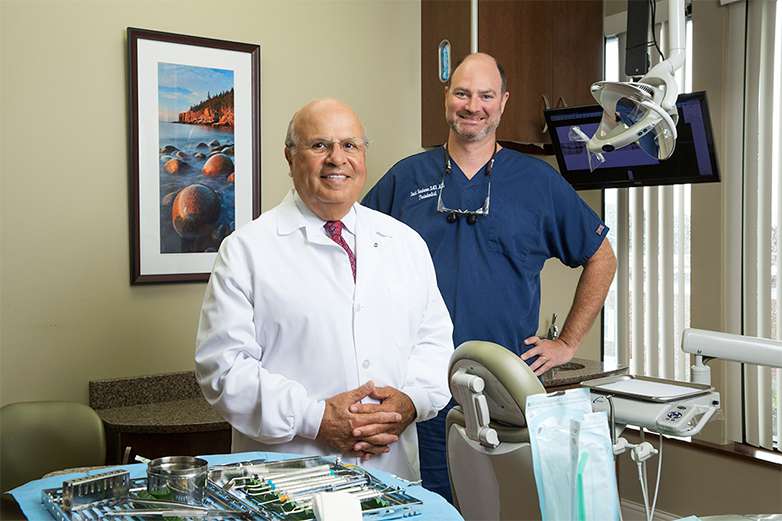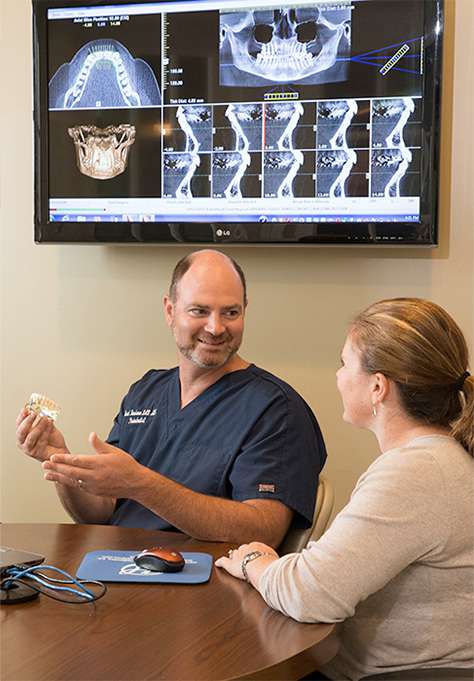Whether you require treatment for advanced gum disease or are looking for an expert to place dental implants, we aim to meet all of your periodontal needs. If you’ve never visited a periodontist before, chances are you might have a few questions about our services. Naturally, our team members are always happy to lend a helping hand, so feel free to let us know what’s on your mind. Below, we’ve answered some common periodontal questions; we hope you find the information helpful.
What do periodontists deal with?
Periodontists are primarily concerned with the gums and jawbone. In some cases, they may perform procedures such as scaling and root planing to treat gum disease. In other situations, they may place dental implants to replace missing teeth. Depending on your situation, they may also offer advanced procedures like gum grafting, bone grafting, and crown lengthening. We can explain our services in more detail if you schedule a consultation at our practice in Worcester.
What level of education is required to be a periodontist?
The first step to becoming a periodontist is to earn an undergraduate college degree. After that comes four years of studying at an accredited dental school to earn either a DDS (Doctor of Dental Surgery) or a DMD (Doctor of Dental Medicine).
Upon completion of dental school, an aspiring periodontist then needs to complete a periodontology residency, which can take three to seven years. The last step is to pursue certification from the American Board of Periodontology. All told, it can take as long as 11 years to be recognized as a periodontist.
What does a periodontist do on the first visit?
There are a few different reasons why one might need to visit a periodontist, so the initial visit might look a little different for each patient. Generally speaking, though, we’ll need to look over your dental and medical history, and we’ll typically perform an examination of your gums and jawbone. In many cases, X-rays will need to be taken.
Once we know what kind of state your mouth is in, we can start putting together an appropriate treatment plan. If there’s anything you want to know about the services we recommend, please don’t hesitate to speak up.
How can you make visiting the periodontist more affordable?
Oral health issues like gum disease tend to grow more severe the longer they go untreated, so if you need any kind of periodontal treatment, it’s best to do whatever you can to try and fit it into your budget.
If you have dental insurance, you can double-check your plan to see if the procedure you need is covered. Every dental insurance policy is different, and sometimes you might be unclear about your benefits. Fortunately, you’ll have our reliable team to review your plan with you; we can also file the necessary claims to help you maximize your benefits.
Another option is to sign up for CareCredit, which lets you break up the cost of your treatment into smaller monthly installments that you can fit into your budget more easily.














